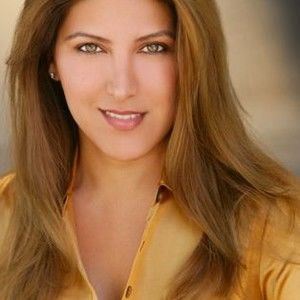8 Week Intensive TV Drama Pilot Writing Lab
Other education that may be of interest to you:
Demystifying the Agency World
Learn directly from Morgan Long, a coordinator from one of the big six Hollywood agencies in the TV literary department! She'll give you specific insider knowledge of the agency system and what it takes to get their attention. There is a cloud of mystery surrounding one of the biggest and most fundamental components of the Hollywood industry – and that’s the agency. Whether you’re a writer, director, non-writing producer, actor – and the list goes on to cover even the most obscure type of talent imaginable– it’s pretty basic knowledge that representation is necessary to launch your career. In this jam-packed...
8 Week Intensive TV Drama Pilot Writing Lab
Learn directly from Morgan Long, TV Literary Department for a “Big Six” Agency This lab is designed for beginner and intermediate screenwriters looking to build a pilot from scratch or expand on an existing idea. With the TV market exploding right now, one of the most in demand formats is the 1-hour TV drama pilot. Many, if not all, managers and agents are looking for writers that can write in this space, and with more and more production companies heading into TV, knowing how to write a strong 1-hour TV drama pilot will give you a competitive advantage and help you find success as a TV writer! Due to popular...
3 Key Steps To Build Your Film Package & Attract Financing
Learn what you need to attract financing through packaging with a producer who has worked on over 25 feature films! Instead of approaching investors with a script and a sales pitch, this Stage 32 exclusive webinar will teach you the tools needed to make an impact so that financiers see your film as an opportunity. You'll be shown how to break this daunting concept of creating a film package into manageable steps, using the resources available to you with minimal expenditures, starting with things you can do for free. You'll learn how to develop your material to what investors need, what elements you must...
How to Turn Your Film or TV Idea into a Podcast to Get the Industry's Attention
This webinar includes a downloadable resource sheet that goes over a podcast checklist, equipment needs, platforms and voice over resources! Podcasts are hotter than ever with hits like HOMECOMING, 2 DOPE QUEENS, and DIRTY JOHN and are a great way to get your film or TV idea noticed. Podcasts are much less expensive than shooting your pilot or making your film on spec so they help you test the waters with storylines and characters, while figuring out the tone of the show and even building a loyal fan base for an eventual film or TV series. If you’ve got a great film or TV idea and are stuck trying to figure out how...
Stage 32 4-Part Writing Class: A Showrunner’s Guide To A Writing Career In Television
Learn the craft of writing for television and how to build and navigate a successful career as a television writer from a veteran showrunner who has worked with Disney, The CW, ABC, and more! PLUS! You'll receive exclusive handouts including series pitch documents, outlines screenplays, and screenplays from real television series including MELROSE PLACE, HE MYSTERIOUS BENEDICT SOCIETY, SHADOWHUNTERS, ADJUSTMENT BUREAU, and the pitch document for Fox's SOAR! Millions of people dream of becoming a television writer in Hollywood. You want to write the next hit television show and have high hopes of...
How to Produce, Record and Distribute Your Own Successful Narrative Podcast
There are a lot of reasons why the surge in popularity of podcasts is so exciting right now. It makes that rush hour commute to work much more enjoyable for millions of people every day. It opens up avenues for more stories to be discovered and more storytellers to create. And it’s a format that can be a lot easier and more affordable for independent artists to produce. You don’t need cameras, you don’t need a set; you just need a quiet room and a couple of microphones. And unlike visual media, podcasts provide a format where high concept, traditionally expensive genres like fantasy, action, and science fiction...







